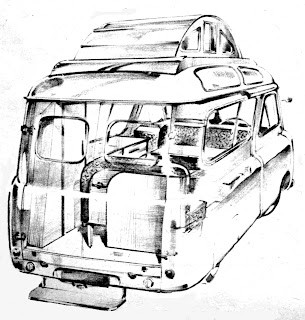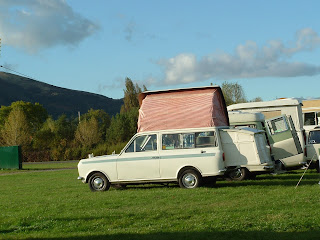Classic Car Clubs...still serve a purpose in the 21st century?
As we pass the quarter milestone in the 21st Century, I pose the question, 'Are clubs still relevant in an age of social media, reels, YouTube and advancing Ai ' ?
Once a familiar part of the UK classic vehicle scene, car clubs were a place where like-minded enthusiasts came together to share their knowledge, exchange spares, swap stories and ideas, hold regular meet-ups, weekend rally's and even continental road tours. Clubs have been around since the internal combustion engine was invented, but really came to prominence (in the UK at least) after WWII, hitting an all-time high for membership numbers as the 1960s and 70s passed.
The 1980s and 90s saw a plethora of clubs emerge as owners sought to bring together enthusiastic owners of past cars from previous decades, aka, those no longer in production, and often referred to as 'classic'. These clubs were extremely successful in the pre-internet days, when the only information available about classic vehicles was obtained either from books, monthly magazines or by joining an owners club.
I would hazard a guess that classic vehicle magazine production was at its zenith throughout the 1990s, with titles such as 'Practical Classics' and 'Classic Car Weekly' devoured by the majority of classic owners in the UK (both titles are still in production thankfully). These publications would give us all the news we required about legislation changes, new parts being reproduced, gadgets available, vehicle for sale, plus parts, and a monthly list of the car shows and autojumbles up and down the country. For my part, I did form a club in the early 90s in order to fill a void, which it successfully did, as it gave owners of a certain vehicle a point of contact for assistance with tracing parts, getting specialist insurance, and tips from like-minded people. Within a couple of years of its formation, there were at least two break-away clubs formed, and by the end of the 90s, I believe the original club had spawned around six similar clubs.
Around 1999-2002, with the advent of the home computer in more homes, there was no noticeable fall in classic cars clubs, or their membership numbers. As the wave of information, and several search engines emerged, then a drop off in owners club popularity, was seen, this being from around 2010 onward. By 2015, when most people had a mini-computer in their pocket, in the form of a smart phone, things really did take a nosedive for classic vehicle club membership. Of all the reasons owners would join a specialist club (pre-smartphone days), was for information, to find spare parts and to source insurance outlets. Now all of these things were suddenly available to everyone, without have to join a club, as even meetings were being arranged via on-line forums and groups. I noticed several clubs disappear off the scene, some with an announcement in the press, but many just fading away without fanfare.
As of 2025, many of the smaller owners clubs have now become FB-only groups, and no longer publish a club newsletter/journal, mostly because of falling numbers and increased postage costs. For clarity, I am talking about the smaller owners clubs within the UK, not the clubs that represent the prestige marques, and have their own offices and workshops!
The internet and smartphones can't be held solely responsible for the demise of the British owners clubs, there is also the fact that each new generation is less attracted to the vehicles from many decades ago. Add to that, the reality that spare parts for many of the much older vehicles are almost non-existent. Then we throw into the mix the 'eco' factor, and the clean air towns and Cities. Owning, running and maintaining a classic vehicle in 2025 is really a labour of love, and moving forward, I envisage that it won't get any easier.
Long live the classic car and vehicle clubs, even if it is simply as groups on the internet.






Comments
Post a Comment